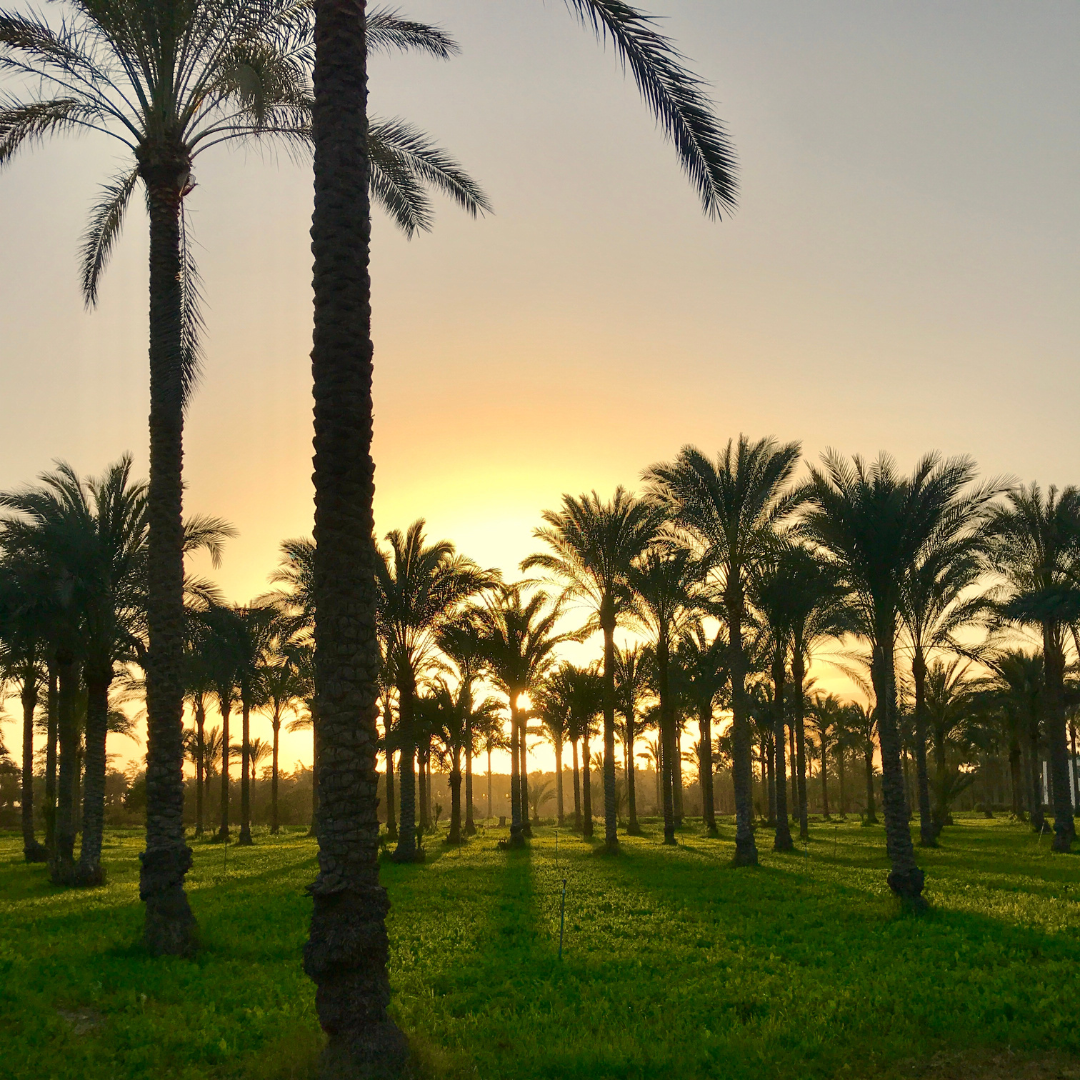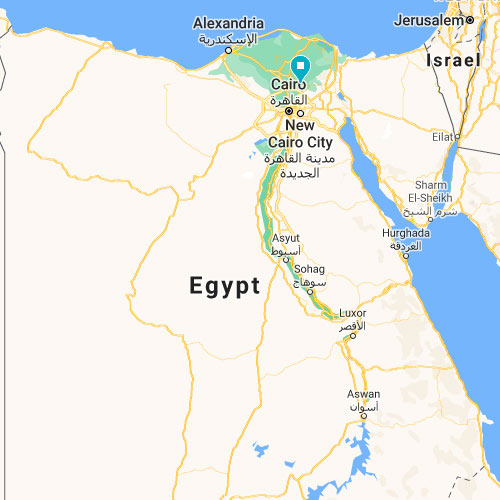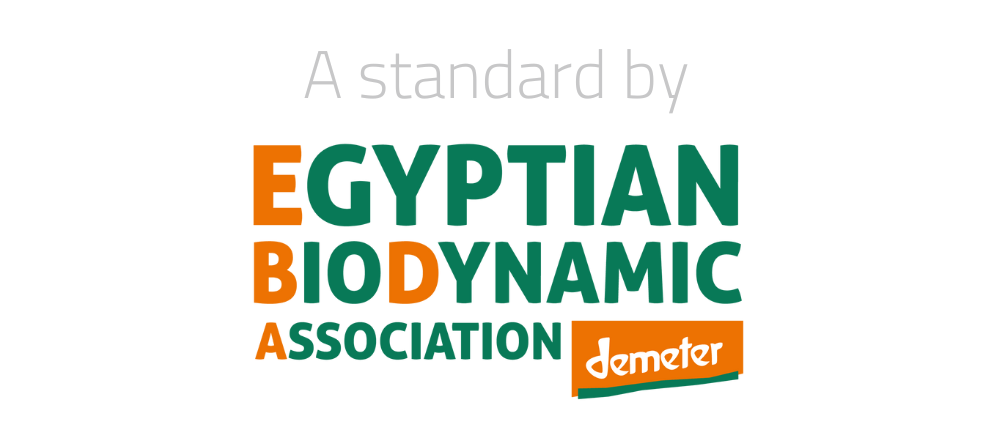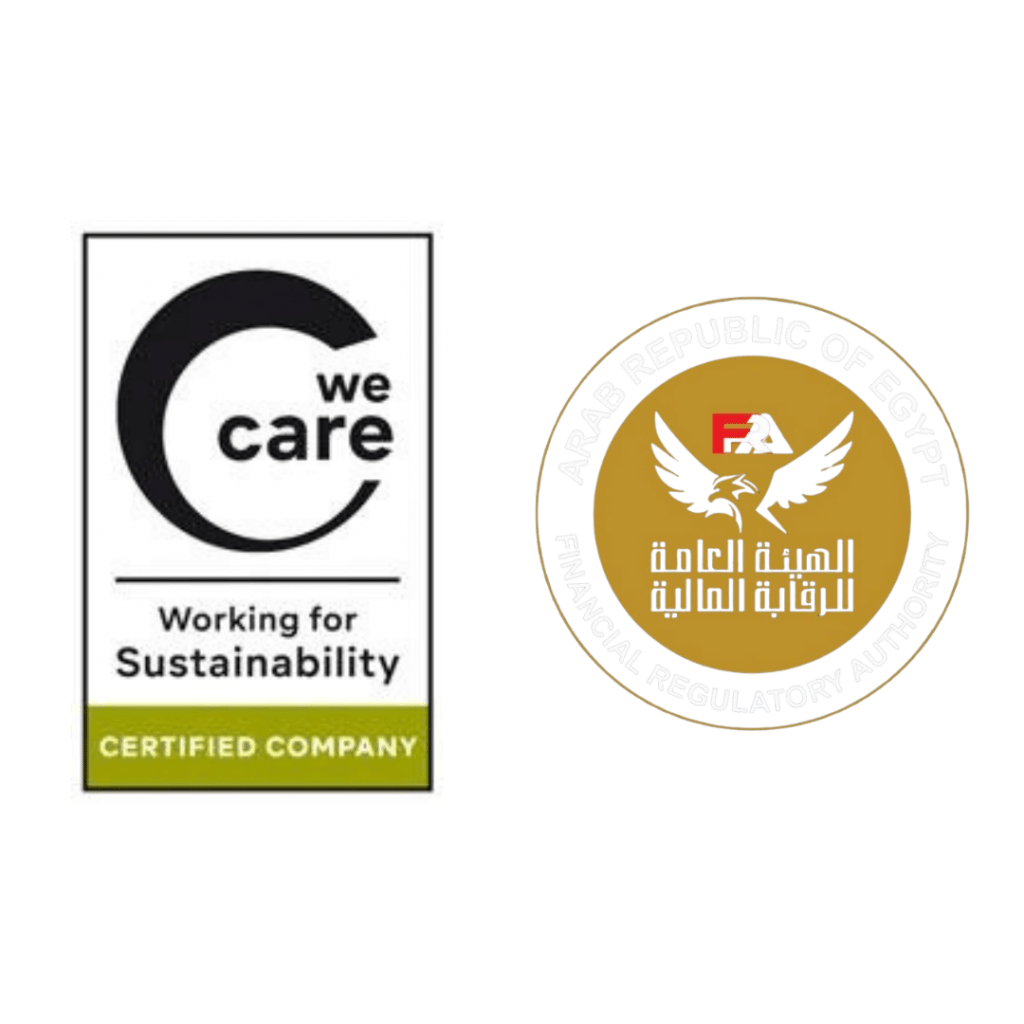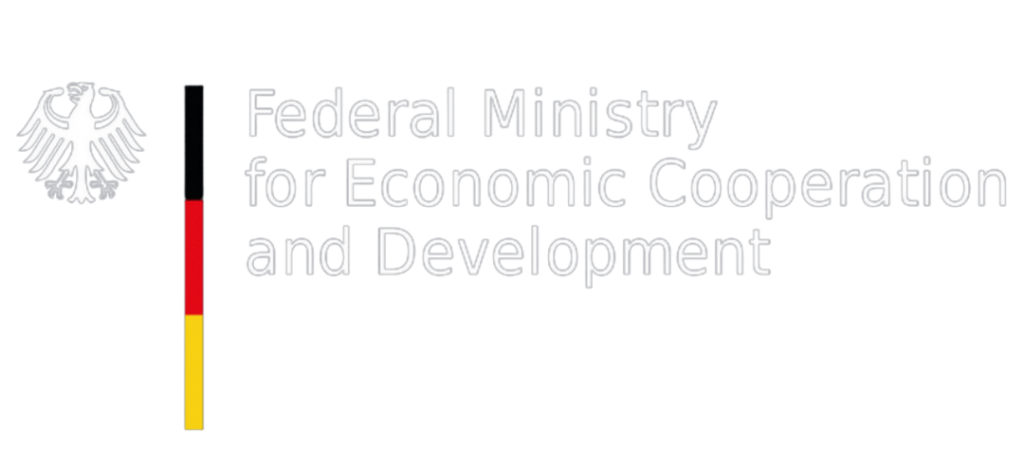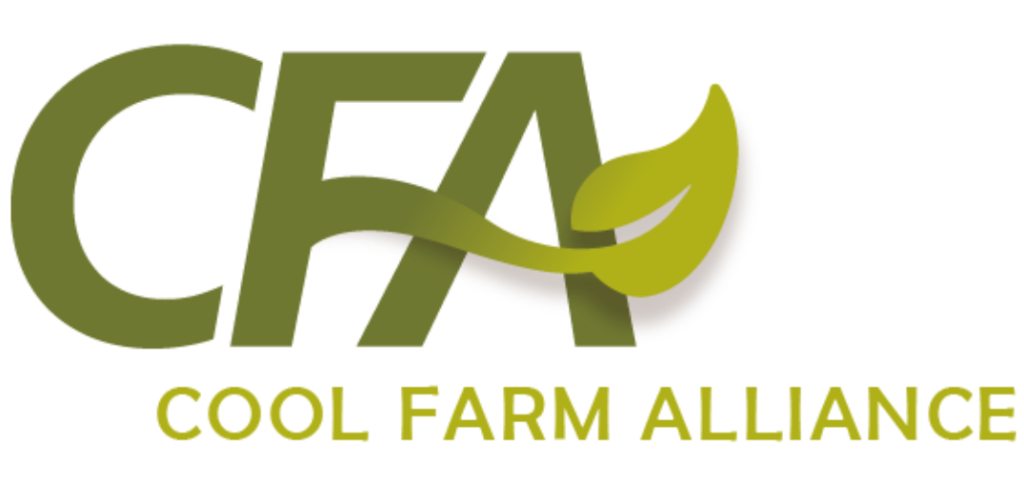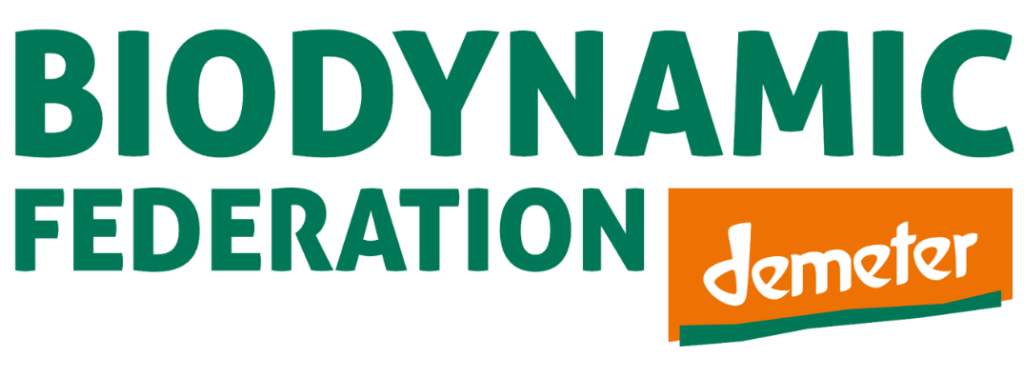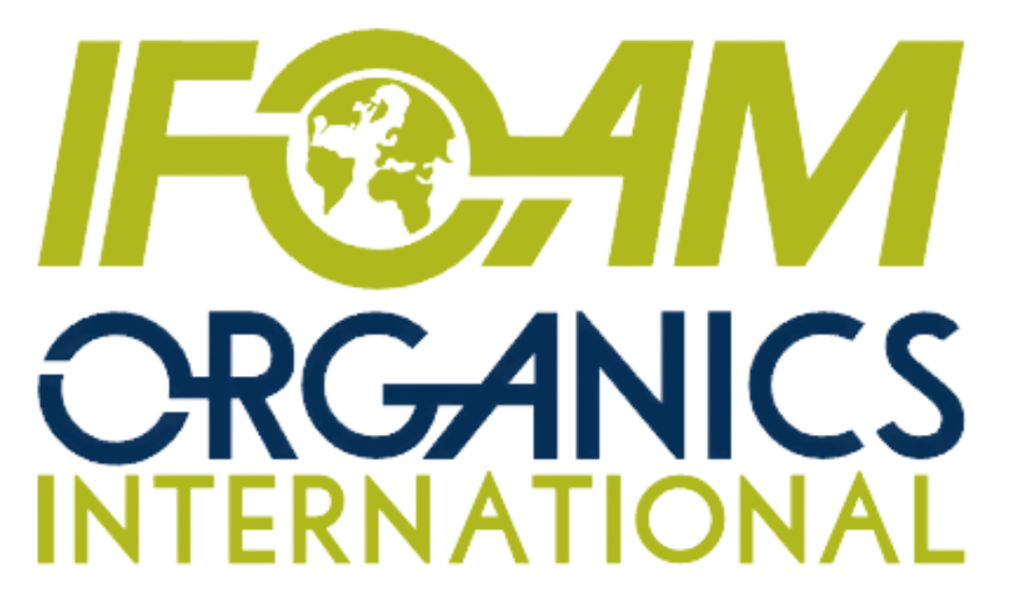Traceback your Product
and explore your
impact on people
& the environment
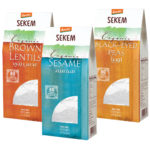
Creating a
FAIR ECONOMY
100%
of SEKEM’s focus is promoting diversity and inclusion as well as responsible consumption, and contributing to a low-carbon circular economy.
Creating a
FAIR SOCIETY
100%
of SEKEM Initiative is driven by an action-oriented research model through applied collaboration between researchers and practitioners.
Life Long Learning &
WELLBEING
100%
of SEKEM’s point of view in working together as an ideal space for learning and consciousness development..
Protecting the
ENVIRONMENT
7800
tons of compost were produced and used at SEKEM in 2021
Farming
This chickpeas was produced on Aswan, Asuit and Al-Minia farms in Egypt. It grows on Demeter and organic certified farms, following the holistic principles of Economy of Love that actively protect the environment and increase biodiversity.
Through biodynamic compost production, EoL farmers manage to avoid Co2-eq emissions that may result if the manure and biomass were left, untreated, to decay anaerobically.
Economy of Love builds the capacity and expertise of the small farmer in biodynamic agriculture by linking them to associations that provide the guidance of agricultural engineers specialized in biodynamic agricultural methods.
SEKEM is focusing our support on an impactful carbon footprint improvement of our licensee farms
Meet The Farmers
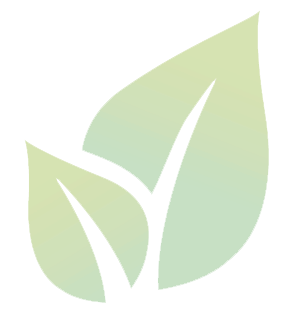
get to the source of production
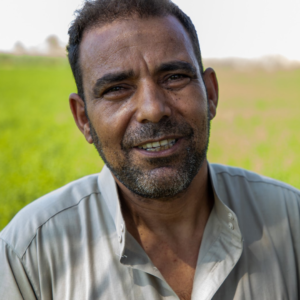
Mahmoud
Farmer in Aswan, Egypt
Mahmoud Salah Abdel Hamid is originally from an area close to Cairo. In 2004 the government under Mubarak replaced his farm to the south and gave him a piece of land close to Aswan. Mahmoud has six children and lives with his family on the new farm-land.
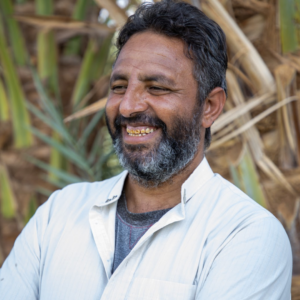
Saber
Farmer in Aswan, Egypt
Saber clarifies that since partnering with SEKEM his income increased. SEKEM always support them with the training needed and provide them with the materials that help them plant in more efficient way
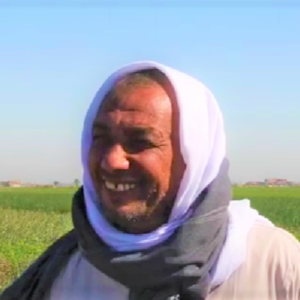
Abd El-Ghaffar
Farmer in Asuit, Egypt
Abd El-Ghaffar is a farmer growing Demeter-certified crops in the Nile delta. He’s been following the biodynamic agriculture methods for more than15 years .
Processing
After the chickpeas comes directly from the farm and arrives at Lotus company, sample are taken to be tested to ensure the organic and Demeter production of the sesame. Once it passes the test the chickpeas are then taken to be purified, sieved, and cleaned.
Lotus has improved the efficiency of the machinery equipment at their factories so they reduced their energy consumption by 8.6%.
Lotus in 2021 was able to reach a 48% reduction in the non-organic waste that is sold for external providers.
As part of Sekem holdings, Lotus offers the core program to their employees, where they get to learn more about themselves in potential unfolding sessions.
Packaging
When the chickpeas arrive at the iSiS Organic Food Company, samples are taken to be tested to ensure the standards of organic and biodynamic approaches are met. The chickpeas arrives in 25KG paper bags that are then packed into the final paper packaging box..
Since its foundation, the iSiS factory has implemented the Core Program which enables all factory employees to engage in courses of art, acting, music, geography, and many more to promote happiness at work.
EoL is re-directing its profit to make a share for funds and loans that supports the farmers to improve their farm’s activity.
Isis factory was able to reduce its organic wastes by 25% which reflect positive impact on the environment.
Packaging Material
The chickpeas could be responsibly grown and processed, but its packaging material and the companies from which they are sourced also have a huge impact on the products’ lifetime, and cannot be neglected.
SEKEM packaging boxes has the highest quality as SEKEM seeks to redue the packaging material and increasing the share of biodegradable and recycled packaging material
Isis uses high-quality boxes that are recyclable and biodegradable material for reducing the waste and helping the environment.
SEKEM is focused on holistic sustainable development and social innovation in Egypt.
Distribution
The chickpeas grains packages are now ready to be distributed directly to your home, local shops, or overseas.
Distribution process is under the supervision of Isis to ensure the selection of the shipping cars to be cleaned and qualified for the process.
Calculating the estimated emissions from all the farmers and the transportation emissions from farm to the final consumer
The first choice is always sea freight to reduce emissions, however air fright is needed sometimes.
Meet The Employees

have a look, who processed, packaged and distributed your product
Marwa
Quality Manager in iSiS
Marwa has been working in the tea department of iSiS factory for more than 8 years. Together with her husband and two children, she lives on the SEKEM farm.
Ahmed
Factory Engineer at SEKEM
Ahmed has been working in SEKEM for four years, and lives right next to the SEKEM farm with his family.
Ahmed
Factory Engineer in Lotus
Hassan is in charge of the cleaning and packing machine in the processing facility of Lotus. He has been working in Lotus for 17 years and enjoys that work is combined with cultural programs.
Abd El Magid
Distributor in SEKEM
Abd El Magid has been an employee in SEKEM for over 15 years. He is responsible for distributing the finished products to stores all over Cairo.
What is the True Price?

Are there hidden costs that the price doesn't reflect?
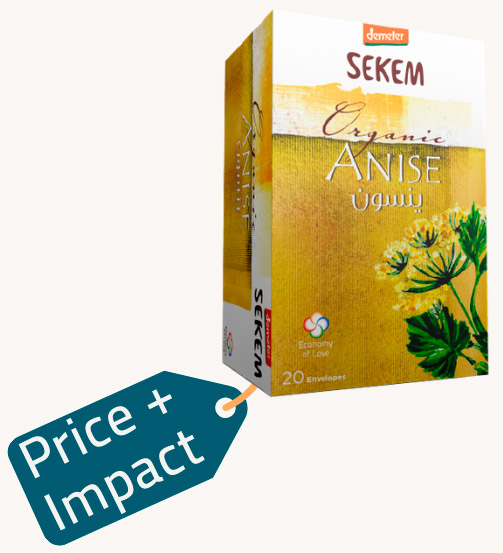
True Price Comparision
Sustainably & ethically produced products add value to society. However, when comparing prices, we don’t take into account the long-term impact of the product. For example, since this Anise is sequestering Co2e it is actually saving up to 0.35USD per kilo! This means that it is cheaper than products that emit Co2e, but so often the price tag doesn’t reflect that.
We encourage you to compare products based on their true price; the price that reflects the hidden costs that we and future generations eventually pay for.

This Anise saves up to 0.35 USD/Kilo, by sequestering carbon from the atmosphere

Indirect Costs include:
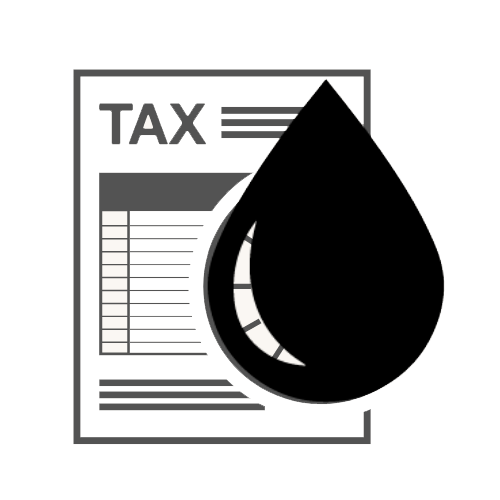
WATER
REPROCESSING COST
Society is paying taxes to clean water sources from agriculture’s chemical fertilizers, pesticides, and herbicides, as well as the irresponsible disposal of wastewater from factories, in order to make it usable/drinkable water.

HEALTH COSTS
The use of pesticides in agriculture eventually affects the human body and therefore increases medical treatment costs.
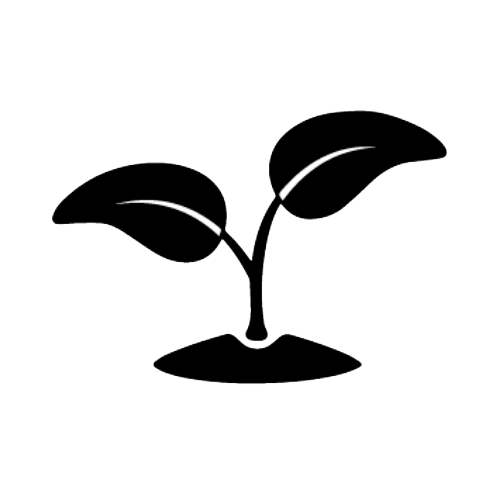
ENVIRONMENTAL
DAMAGE
Society has to bear the long-term cost caused by disruptive agriculture e.g. soil erosion, desertification, and loss of biodiversity.
Locations
Check out the locations of all the farms, companies who were involved in making this product!
discover the origin of your product
Saft
Add an optional description to your map pin economyoflove
Skem El-Wahat
Add an optional description to your map pin economyoflove
Abdalah
Add an optional description to your map pin economyoflove
Abd El-Ghaffar
Add an optional description to your map pin economyoflove
We hope this information helped you Choose Your Impact!
And make mindful purchasing decisions that leave a positive impact on people and the environment
Interested to know more about the companies above? Click here to download the SEKEM Sustainability Report


